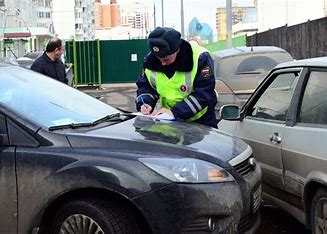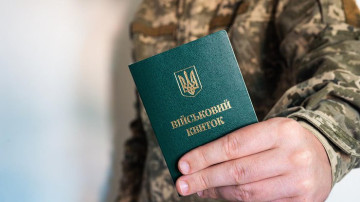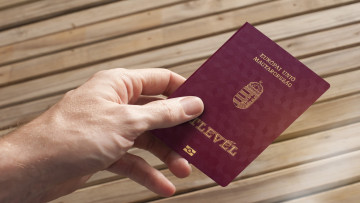lawyer, 23 years of experience in enforcement.
Appeal of a resolution on a traffic violation established by means of video recording.
As of today, a system of auto-fixation of traffic rules works in Ukraine. At the first stage of the introduction of the system, prosecution is provided only for speeding.
Accordingly, Resolution No. 421 dated 05/20/2020 was adopted, which amended the Resolution of the Cabinet of Ministers of Ukraine "On the functioning of the system for recording administrative offenses in the field of road safety in automatic mode" dated 11/10/2017 No. 833.
Appealing a decision on an administrative offense, in accordance with the provisions of Art. 288 of the Code of Criminal Procedure can be done either by filing a complaint with a higher authority that imposed a fine, or in court.
However, the majority of lawyers recommend challenging the decision in court because of the futility of an administrative appeal.
The provisions of Art. 289 of the Code of Administrative Offenses, it is established that a resolution on an administrative offense in the field of ensuring road traffic safety, recorded in automatic mode or on a violation of the rules for stopping, parking, and parking of vehicles, recorded in photo (video) mode, can be appealed within 10 days from the day the resolution enters into force .
The resolution is considered to have entered into legal force upon its delivery to a person, receipt of a postal notification of delivery, refusal to receive it, or return of the postal item with a non-delivery mark.
In the case of missing the specified term due to valid reasons, this term may be renewed at the request of the person in respect of whom the resolution was issued.
It is worth noting that the Code of Criminal Procedure does not contain a list of valid reasons, and the court will decide whether the reason for missing the appeal deadline is valid or not, in each case, based on specific circumstances.
In accordance with Part 4 of Art. 288 of the Code of Administrative Offenses, the person who appealed the resolution in the case of an administrative offense is exempted from paying the state duty.
However, on March 18, 2020, the Supreme Court, considering case No. 543/775/17, came to the conclusion that a court fee in the amount of 0.2 of the subsistence minimum for able-bodied persons must be paid for the filing of a statement of claim regarding the appeal of the resolution in the case of an administrative offense, which is UAH 420.40.
In accordance with the provisions of Art. 19, 20, 286 of the Civil Procedure Code of Ukraine, a statement of claim regarding an appeal against a resolution is submitted to the local general court as an administrative court at the place of residence of the plaintiff or at the place of residence of the defendant. According to Art. 29 of the Civil Procedure Code of Ukraine, the court independently sends the statement of claim to the appropriate court, even if the plaintiff made a mistake and filed the claim in the wrong court of administrative jurisdiction.
According to Art. 292 of the Code of Administrative Offenses, the term for consideration of a claim is 10 days from the date of its receipt.
Based on the result of the review, the court makes a decision on:
- leaving the resolution unchanged, and the claim without satisfaction;
- cancellation of the resolution and referral of the case for a new consideration;
- annulment of the resolution and closure of proceedings;
- changing the measure of recovery, but without increasing it.
It is worth noting that regarding the recording of violations of traffic laws by the Constitutional Court in 2010, in case No. 23-рп/2010, a legal position was expressed that such practice is unconstitutional. The court emphasized that a person's legal responsibility should be individual in nature. The main reason for the inconsistency of the Constitution with the provisions of Art. 14-1, 14-2 of the Criminal Procedure Code, it turned out that the legal owner of the vehicle, and not the driver who drove it and committed the violation, is automatically found guilty of the offense.
The judicial practice of canceling resolutions on bringing to administrative responsibility persons who did not commit traffic violations has already been formed (for example, the resolution of the Supreme Court in case No. 524/5536/17), because the provisions of the above-mentioned norms of the Code of Criminal Procedure have not changed since the decision of the Constitutional Court.
In addition, when studying the resolution, you should pay attention to the following:
- are the vehicle numbers clearly visible?
- does the make of the car match the image in the resolution?
- is the face of the person driving the vehicle visible?
- is the person who was driving the vehicle being prosecuted?
- are the personal data of the person being prosecuted correctly?
A negative answer to these and other questions, which may cast doubt on the fact of committing an offense or the existence of its composition, constitutes a basis for the court to cancel the resolution on bringing a person to justice.
The decision of the court of first instance is not final and can be appealed to the court of appeal within 10 days from the day of its announcement.
In accordance with the provisions of Art. 294 of the Code of Administrative Offenses, an appeal is submitted to the relevant appellate court through the local court that issued the decision. The local court sends the appeal along with the case to the relevant appeal court within 3 days.
Appealing a decision on an administrative offense, in accordance with the provisions of Art. 288 of the Code of Criminal Procedure can be done either by filing a complaint with a higher authority that imposed a fine, or in court.
However, the majority of lawyers recommend challenging the decision in court because of the futility of an administrative appeal.
The provisions of Art. 289 of the Code of Administrative Offenses, it is established that a resolution on an administrative offense in the field of ensuring road traffic safety, recorded in automatic mode or on a violation of the rules for stopping, parking, and parking of vehicles, recorded in photo (video) mode, can be appealed within 10 days from the day the resolution enters into force .
The resolution is considered to have entered into legal force upon its delivery to a person, receipt of a postal notification of delivery, refusal to receive it, or return of the postal item with a non-delivery mark.
In the case of missing the specified term due to valid reasons, this term may be renewed at the request of the person in respect of whom the resolution was issued.
It is worth noting that the Code of Criminal Procedure does not contain a list of valid reasons, and the court will decide whether the reason for missing the appeal deadline is valid or not, in each case, based on specific circumstances.
In accordance with Part 4 of Art. 288 of the Code of Administrative Offenses, the person who appealed the resolution in the case of an administrative offense is exempted from paying the state duty.
However, on March 18, 2020, the Supreme Court, considering case No. 543/775/17, came to the conclusion that a court fee in the amount of 0.2 of the subsistence minimum for able-bodied persons must be paid for the filing of a statement of claim regarding the appeal of the resolution in the case of an administrative offense, which is UAH 420.40.
In accordance with the provisions of Art. 19, 20, 286 of the Civil Procedure Code of Ukraine, a statement of claim regarding an appeal against a resolution is submitted to the local general court as an administrative court at the place of residence of the plaintiff or at the place of residence of the defendant. According to Art. 29 of the Civil Procedure Code of Ukraine, the court independently sends the statement of claim to the appropriate court, even if the plaintiff made a mistake and filed the claim in the wrong court of administrative jurisdiction.
According to Art. 292 of the Code of Administrative Offenses, the term for consideration of a claim is 10 days from the date of its receipt.
Based on the result of the review, the court makes a decision on:
- leaving the resolution unchanged, and the claim without satisfaction;
- cancellation of the resolution and referral of the case for a new consideration;
- annulment of the resolution and closure of proceedings;
- changing the measure of recovery, but without increasing it.
It is worth noting that regarding the recording of violations of traffic laws by the Constitutional Court in 2010, in case No. 23-рп/2010, a legal position was expressed that such practice is unconstitutional. The court emphasized that a person's legal responsibility should be individual in nature. The main reason for the inconsistency of the Constitution with the provisions of Art. 14-1, 14-2 of the Criminal Procedure Code, it turned out that the legal owner of the vehicle, and not the driver who drove it and committed the violation, is automatically found guilty of the offense.
The judicial practice of canceling resolutions on bringing to administrative responsibility persons who did not commit traffic violations has already been formed (for example, the resolution of the Supreme Court in case No. 524/5536/17), because the provisions of the above-mentioned norms of the Code of Criminal Procedure have not changed since the decision of the Constitutional Court.
In addition, when studying the resolution, you should pay attention to the following:
- are the vehicle numbers clearly visible?
- does the make of the car match the image in the resolution?
- is the face of the person driving the vehicle visible?
- is the person who was driving the vehicle being prosecuted?
- are the personal data of the person being prosecuted correctly?
A negative answer to these and other questions, which may cast doubt on the fact of committing an offense or the existence of its composition, constitutes a basis for the court to cancel the resolution on bringing a person to justice.
The decision of the court of first instance is not final and can be appealed to the court of appeal within 10 days from the day of its announcement.
In accordance with the provisions of Art. 294 of the Code of Administrative Offenses, an appeal is submitted to the relevant appellate court through the local court that issued the decision. The local court sends the appeal along with the case to the relevant appeal court within 3 days.
Article 295 of the Code of Administrative Offenses establishes that a copy of the decision on the appeal against the resolution is sent to the person against whom it was issued within 3 days.
I would like to draw your attention to the fact that the mentioned resolutions are sent to the state executive service bodies for execution automatically, but almost no one pays attention to the fact that such resolutions are sent due to the violation of the deadline for presenting the executive document for execution.
So, as can be seen from the above, in order to restore one's right, it is advisable to obtain the services of a lawyer or the sound advice of a lawyer.
Legal service "Consultant" provides all types of legal services, including online legal services. Specialists of our service will make a legal analysis of the situation and help to conduct a court process and restore the violated right.




































